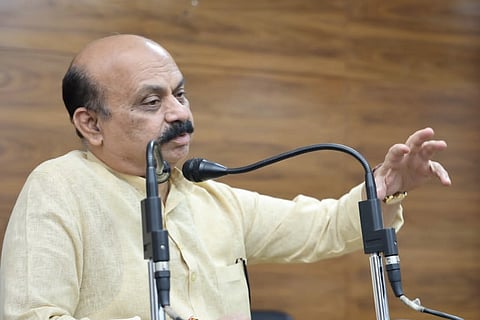

Karnataka Chief Minister Basavaraj Bommai on Monday, February 7, said his government has a "clear view" on the proposed river-linking projects related to the Krishna, Pennar and Cauvery, and that it will take all steps to get the state's share of water and not compromise. Bommai, who is in the national capital on a two-day visit, also told reporters that the Union government has asked the Karnataka government to discuss with the states concerned before finalising a detailed project report (DPR).
Union Finance Minister Nirmala Sitharaman, in her 2022-23 budget speech, had proposed five river linking projects in the country — Godavari-Krishna, Krishna-Pennar, Pennar-Cauvery, Dharmaganga-Pinjal and Par-Tapi-Narmada. Of these, Krishna, Pennar and Cauvery projects are of concern to Karnataka.
Asked about the three projects related to the state, the Karnataka chief minister said, "In river linking projects, our view is very clear and will take all steps to take the share of Karnataka. The state government has taken the matter seriously as Krishna and Cauvery are the main rivers that are the lifeline for the state," he said and noted, "We will not compromise on this issue."
Asked if the state government has demanded its share of surplus water, Bomai said the issue of surplus water and river linking are different. "It is linking of Himalayan and peninsular rivers. We have clarity on this. The same wiil be conveyed," he added.
Bommai had at the recently held Southern Zonal Council meet at Tirupati said peninsular rivers should not be interlinked before the state's share of surplus water is finalised. The interlinking of Himalayan and peninsular rivers as well as the linking of 37 inter-state rivers had been mired in controversy since it was first proposed by the British in the 19th century.